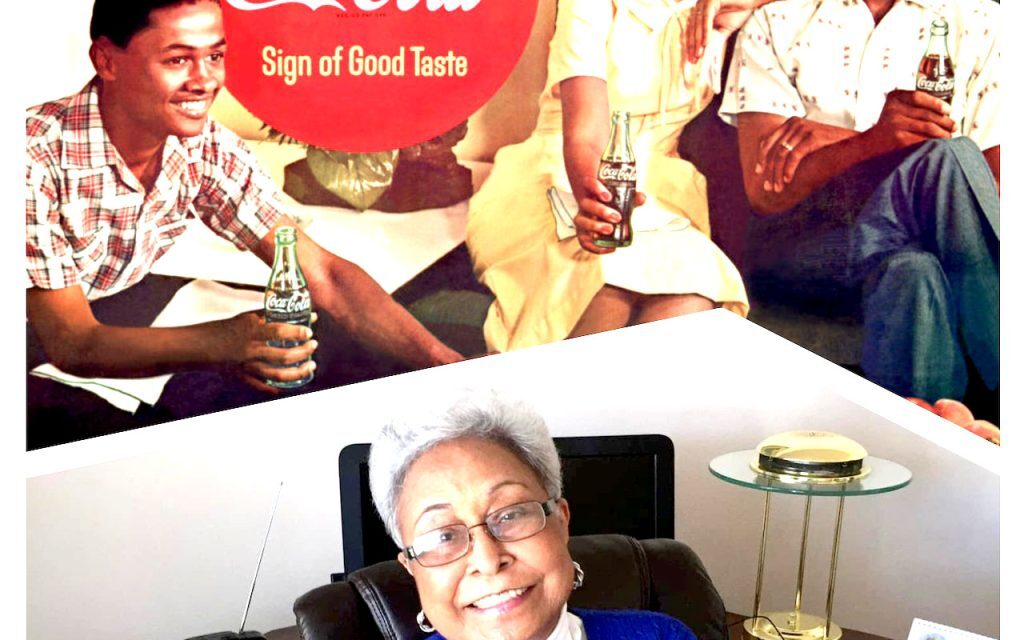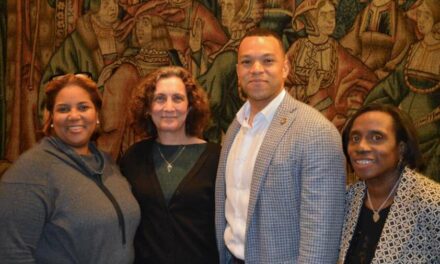“Is your mother Mary Lane Alexander?”
“Yes,” replied Richard Lane, a Detroit minister and son of the late Dick (Night Train) Lane and a woman who hailed from tiny Ballplay, Alabama (pop. 1,114 today) in Etowah County. A woman who was the baby of Hurley and Electa Cowser’s 10 children raised on their farm. A woman who left Ballplay as fast as she could, following her older sister to Clark College in the mid-1950s.
Olympic diver Margo Erlam on her Indigenous roots and the importance of Truth and Reconciliation dayOlympic diver Margo Erlam on her Indigenous roots and the importance of Truth and Reconciliation day
A woman who became.
Who became the first Black female model to appear in an advertisement for Coca-Cola. That happened in 1955 when the venerable brand decided to launch a campaign aimed at “Negro” consumers—a radical strategy for the time.
Who became the first African American teacher for the Mount Clemens School District just north of Detroit.
Who became the first African American female school administrator for the state of Michigan, and the first female principal at Highland Park High School.
Who became a corporate recruiter, of a sort—encouraging myriad high-school students to apply for jobs with major employers, particularly the many auto plants. Among them was the afore-quoted man who approached Lane.
“I was preaching somewhere years ago in California, and this couple that came up to me and asked if she was my mother,” Lane recalled. “The guy said, ‘Your mother in 1980 sent me on a job interview when I was in high school. I got that job and worked at that job for 35 years. When I got there, I met my wife, we got married, and we’ve been married for almost 40 years. Your mother was responsible for not only me having a great job but also meeting my wife.’ I’ll never forget that.”
Mary Cowser Alexander died last Thursday from a heart attack, her son said, after years of suffering from scleroderma, a chronic autoimmune disease. “It’s a slow, painful killer, and there’s no cure for it,” Lane shared. “But she’s got to be the strongest woman I’ve ever known. She suffered gracefully. She rarely complained. She was a woman of faith. She loved her husband and loved her family, and just was an inspiration to so many.”
Alexander is widely lauded for being a trailblazing model for Coca-Cola, something she was initially reluctant to pursue. Indeed, she had to be persuaded to apply because she was already busy studying to be a teacher and participating in other activities, including sports. Moreover, Mary didn’t believe her strict father back in Ballplay would allow her to model anyway after learning she might be required to wear a swimsuit.
Daddy came around upon learning the winner would be paid $600 for the initial ad, an amount that would cover a full year’s tuition. And was more than her father earned in several months of farming. Mary was chosen from among 75 girls representing cities from Atlanta, where Mary was a college student, to New York, and went on to appear in several Coca-Cola ads.
In a statement to AL.com, the company said: “We are saddened to learn of the passing of Mary Alexander, an extraordinary woman who has left a positive impact on our company and those lucky enough to have known her. In 1955, Mary was the first female African-American model to be featured in a Coca-Cola ad. Her historic advertisement marked a significant moment not just for The Coca-Cola Company, but for the future of inclusive advertising, and helped to dismantle racial barriers. We extend our heartfelt sympathies and sincere condolences to her family and loved ones during this difficult time.”
Lane recalled a commemoration of the 50th anniversary of the historic advertisement hosted by Coca-Cola in Atlanta. “It was a gala affair,” he said. “They did it up. They invited all the family. Steve Harvey was the host. She got a chance not only to meet him, but they spent a lot of time together and she was on the Steve Harvey Morning Show the next day. It was a big thing, and it was all to honor her.”
Despite the historic significance of Alexander’s role at Coca-Cola, Lane hopes his mother is additionally remembered for the significant impact she had on so many young lives in Detroit.
“She was responsible for getting hundreds, if not thousands, of African American kids jobs with major employers in the Detroit metropolitan area,” he said, “and many of them went on to have productive careers and retired from those positions.”
Lane paused. “I’m sad my mother is gone,” he continued, “but I’m really grateful right now because God took her pain away. She doesn’t have to suffer anymore. She is rejoicing in her eternal reward. That’s what makes me feel good.”
Alexander lived in Ocala, Florida with her husband, Lane’s stepfather. She was 90.











